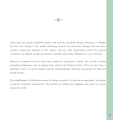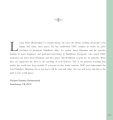Buddha-Nature : ค้นหาหนังสือธรรมะ หน้า 26 / 60
หน้าหนังสือทั้งหมด

157
Meditation Practices and Activities at Centres
Each centre has regular meditation practise and activities including offering sustenance to Buddha on every first Sunday of the month, dedicating merit to the decreased, releasing fish and other creat
Each centre hosts regular meditation practices and activities like offering sustenance to Buddha, dedicating merit to the deceased, and releasing creatures. Special ceremonies are complemented by cour

173
Luang Phaw Dhammajayo's Teachings on Buddhism and Inner Peace
Luang Phaw Dhammajayo is compassionate. He cares the others, wishing all people to be happy and attain inner peace. He has established DMC channel in which he gives teachings to propagate Buddhism dai
Luang Phaw Dhammajayo promotes compassion and the teachings of the Buddha through the DMC channel, guiding individuals towards inner peace and happiness. His approach emphasizes non-violence, making i

187
Creating World Peace Through Collective Effort
"In creating World Peace, a single group, a single team or a single country cannot do it alone. Everyone in the world must be a part of this creation of peace from the beginning. If someone believes w
Creating world peace requires the involvement of every individual; it cannot be achieved alone by any single group or nation. The true essence of peace comes from a collective intention and meditation

6
The Teachings of Luang Phaw Dhammajayo
immersing himself in the study and practice of the
Buddha's pure teachings. For almost 40 years, he
has always emphasized to the thousands of those
who follow his teachings at the Dhammakaya
Temple, b
Luang Phaw Dhammajayo has dedicated nearly 40 years to promoting the Buddha's teachings, asserting that true world peace originates from inner peace. He emphasizes everyone's role in enhancing humanit

12
Dhamma for Laypersons: Building a Stable Family
Although the solution is not simple, that does not mean there is no path to correct and prevent them from occurring. If each person realizes what the heart of the family is and everyone takes the best
The solution to family dilemmas is found in understanding the heart of the family and the teachings of the Buddha. Dhamma for Laypersons comprises four core principles: truthfulness, self-control, end

32
The Importance of a Calm Mind in the Face of Uncertainty
Base on this truth, whether we are content or not, as humans, we must learn to have calm and unwavering minds, not to be frightened of life's uncertainties, and know how to remain alert, like the eart
This content emphasizes the importance of maintaining a calm and unwavering mind amidst life's uncertainties. Drawing from the teachings of the Lord Buddha to Venerable Rahula, it illustrates the need

34
Understanding the Three Characteristics of Existence
When we receive fortune, prestige, recognition or happiness,
our minds will remain calm, not overwhelmed or attached.
A person who is aware of suffering and happiness has
trained the mind to be as s
This text discusses the importance of understanding the Three Characteristics of existence: Impermanence, Suffering, and Non-self. It emphasizes that fortune, prestige, and happiness are temporary and

37
Practicing the Four Universal Forms of Benevolence
The Buddha answered this question in one word: benevolence. That is to say mutual benevolence, the practice the Four Universal Forms of Benevolence (Sāngahavatthu), promote happiness in living togethe
The Buddha highlighted benevolence as key to mutual happiness. The Four Universal Forms include: 1. Giving (Dāna) – sharing wealth and support fosters a positive atmosphere. 2. Pleasant Speech (Piyavā

40
Lady Visakha: A Pioneering Upasika in Buddhism
Who was Lady Visakha?
Visakha, a supreme Upasika [a Buddhist laywoman], was a very important person in Buddhism. She was responsible for the construction of Wat Buppharam, one of many ashrams, a cent
Lady Visakha was a prominent Upasika who played a vital role in Buddhism. She built Wat Buppharam in Savatthi, contributing an extraordinary fortune. She initiated the tradition of offering robes for

41
Wisdom for Marriage: Ten Suggestions from a Father to His Daughter
When they reached Magadha, which was 112 kilometers from the capital of Kosol, Tanachai asked King Pasantikosol, "The city is small and I have a large number of retinue with me. It will be inconvenien
As Lady Visakha prepares for marriage, her father imparts important lessons on maintaining family dignity and relationships. He advises her to keep family matters private, not to bring external issues

46
The Teachings of the Lord Buddha on Life and Rebirth
The Lord Buddha taught that:
1. It is not the end of all things when we die.
2. When you perform good deeds you will go to Heaven.
3. When you perform bad deeds you will go to hell.
4. When you exting
The Lord Buddha emphasizes that death is not the end. Good deeds lead to Heaven, while bad deeds lead to hell. Purifying the mind by eliminating kilesa is vital for reaching Nibbana. Through good deed

116
Reflections on Family and Kammic Retribution
"Luang Phaw, I feel like my father takes unfair advantage of my mother. He doesn’t care about his children and only looks after himself. He is only concerned about his own wellbeing. During tough time
In this discussion, a boy shares his concerns about his father's irresponsible behavior towards their family. Luang Phaw emphasizes the importance of understanding familial roles and the moral respons

133
The Relationship Between Physical and Ethereal Hearts in Buddhism
The physical heart is an organ. Nowadays, doctors can stop the beating of the heart while operating on a patient with heart problems and are able to restart the beating once the operation is finished.
บทความนี้ศึกษาความแตกต่างระหว่างหัวใจทางกายภาพกับหัวใจทางจิตวิญญาณ โดยยกตัวอย่างจากพระไตรปิฎกที่บอกถึงแนวคิดที่ไม่เป็นที่รู้จักในสมัยนั้น เช่น การมีจักรวาลมากกว่าหนึ่งจักรวาล และความสำคัญของการสร้างบุ

134
The Correct Way to Gain Merits
In the chapter, "The Correct Way to Gain Merits" -In the morning, I will not eat before I have performed from the book Good Question, Good Answer by Venerable *Phra Rajabha* (the rest is cut off)
- To
In this chapter from 'Good Question, Good Answer' by Venerable Phra Rajabha, the author outlines a daily routine to cultivate merits. It emphasizes the importance of observing precepts, meditating, an

139
The Importance of the Five Precepts
4. We shall not lie, utter profanity, speak nonsense, or use divisive words.
5. We shall not consume intoxicants such as addictive drugs and alcohol.
These Precepts are needed to keep peace on earth.
The Five Precepts, known before the birth of Buddha, are vital for maintaining peace on earth. They quantify human behavior: observing all means being fully human while deviating leads to increasing a

140
Making the Five Precepts Easy for Children to Understand
Chapter 33
**Making the Five Precepts Easy for Children to Understand**
Once, I had the chance to observe a senior monk simplify the Five Precepts for the children. The writer was impressed with
In this chapter, a senior monk demonstrates how to simplify the Five Precepts for children. The focus is on making these fundamental teachings understandable through engaging dialogue. The Five Precep

143
Understanding the Fourth and Fifth Precepts of Buddhism
Yes, he will.
And have you ever lied to him?
Remember this, if you lie to somebody, they will feel less love for you each time, and vice versa. No one likes dishonesty, so you should not lie to anyo
This text discusses the Fourth Precept, emphasizing that dishonesty diminishes love and trust. It relates this to the Fifth Precept, which forbids intoxicants, showing how ethical behavior leads to me

154
The Reality of Suffering and Happiness in Life
"Even though we may dislike difficulties and welcome happiness, there is no way to avoid suffering in our lives because life is a mixture of suffering and happiness. Instead, we should prepare for the
ชีวิตเป็นการผสมผสานของความทุกข์และความสุข ไม่มีทางหลีกเลี่ยงความทุกข์ได้ พระพุทธเจ้าสอนให้เตรียมใจให้พร้อมรับมือกับความทุกข์ ซึ่งรวมถึงความแก่ ความเจ็บป่วย และความตาย ผู้คนมักจะมองข้ามความทุกข์ด้วยการ

155
Reflections on Death: Cultivating Merit and Purpose in Life
do not know when we are going to die. We must sooner or later be separated from all loved ones and treasured things.
How can people think about death?
1. Thinking about death with the false view: Th
In contemplating death, there are varied perspectives. The false view neglects merit and life’s purpose, while the right view emphasizes the importance of good deeds before we die. Life’s ultimate goa

172
The Importance of Dhamma in Family Life
By studying Dhamma every day, our ancestors were always reminded of the Lord Buddha’s teaching about never failing to make merit. Because everyone will die someday, the only things that we can bring w
Daily practice of Dhamma has been essential for past generations, teaching the importance of accumulating merit over sin. By fostering moral values in families, ancestors contributed to the developmen
